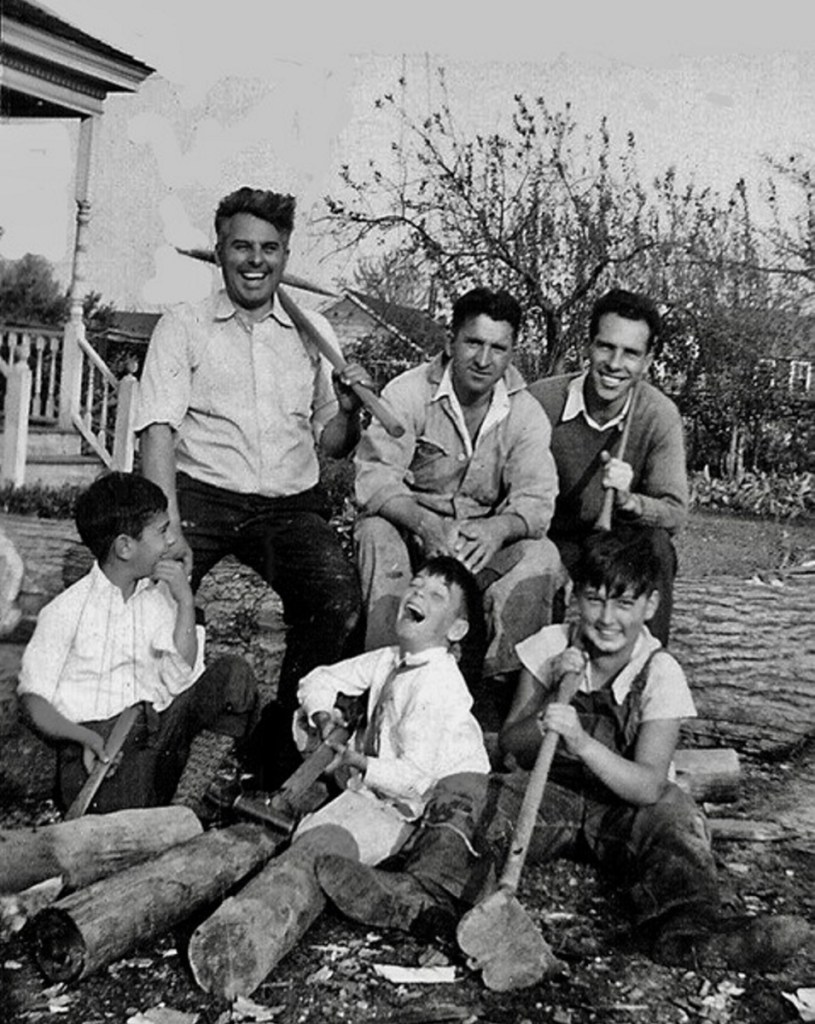A decade ago, my uncle Arthur Faria Soares sent me a CD. It contained more than 350 photographs that he had digitized. They were from the collection of his sister, Beatrice, and depicted the Soares family from the mid-1920s onward.
This was a priceless gift to me.
I browsed through the photos when I received them and marveled at them. Though I’d grown up hearing my aunt, uncles and father tell stories about their youth, I still had questions about some of the images. Uncle Arthur and I corresponded, and, along with answering my questions, he sent me some copies of very old photographs, including some of my great-grandparents and their children in Rio de Janeiro, Brazil, around 1898.
Though the photos fascinated me, I didn’t do much with them at the time. The recent heat wave, however, confined me to the house like a January blizzard. I looked for things to do indoors, in the air conditioning. It occurred to me that I really needed to get those images off the disk and onto my MacBook Air.
So I did. And I was off.
I have been posting a photo a day to Facebook, with accompanying explanations of the people, places and events depicted in them. I now feel like I’m living in a parallel universe.
That would be southeastern Massachusetts in the middle of the 20th century. My grandfather, Victor Faria Soares Sr., along with his widowed mother and two brothers, came to the city of Fall River from Brazil in 1910. He married Rose Raymond, the daughter of Québécois immigrants, in 1925. They lived in the city for perhaps 10 years, then moved to the suburb of Somerset with their four children: Victor Jr., Bea, Raymond (my father) and Art. Rose’s aunt, Alexina, also came along.
Most of the photographs depict everyday scenes of life around the house at 204 Sherman Road. Some date from the Depression; then the war was on. The Soareses tended a large vegetable garden. They kept chickens, and at one point, ducks. My grandfather worked on his car. Ray and Art showed off their new wool, plaid “Mackinaw” jackets.
The family cleaned up after the Hurricane of 1938. My grandmother read the newspaper; Uncle Arthur said she particularly liked crime news. Their pit bull, Spotty, obligingly posed.
Sometimes the Soareses hit the road. My grandmother was always in a dress and hat; Aunt Bea, in a dress or skirt. My grandfather unfailingly wore a tie, and the boys were always neatly dressed (and sometimes they wore ties, too). They went to Cape Cod, and the Franklin Park Zoo in Boston. My grandparents journeyed to Quebec and posed in front of the famed church, Notre-Dame-des-Victoires, in lower Quebec City.
But the most intriguing trip was one my grandparents and Aunt Bea took to Martha’s Vineyard in 1948. They were apparently part of a contingent of members of the Somerset Portuguese-American Civic League (a social and advocacy group) attending a PACL convention on the island. They were a jovial group. In one memorable shot, my grandmother is in the middle of a group of smiling, laughing people. A man of color in a Panama hat is embracing her. She has a look on her face that says, “Yeah, look at me, getting hugged!”
Mémère, as we called her, was both funny and kind. She spoke French (and English) growing up, but learned Portuguese so she could communicate with her mother-in-law. My pépère also had a good sense of humor, but he presented a dignified, somewhat stern aura. I am amazed how strongly their personalities are reflected in these photographs.
It would be easy for me to wallow in nostalgia as I work with these family treasures. It was a simpler time. Forget cellphones; my grandparents were the only people on the street to have a landline. (They let their neighbors use it.) The Fall River Herald News, the radio and movie theater newsreels were their window to the world; they weren’t bombarded with 24-hour cable and Internet news. Their president was Franklin Delano Roosevelt, and I rest my case right there.
But their close neighbors, the Quentals, fell on hard times during the Depression. They couldn’t finish building their house, so the family (parents and six children) lived in the capped basement. Uncle Victor went to war in Europe. Fascists were marching through the continent, and even spewing hatred on the radio right here.
The Soares family survived; thrived, in fact. I take heart in that, as I despair over the current state of our country.
Liz Soares welcomes e-mail at lizzie621@icloud.com
Send questions/comments to the editors.



Comments are no longer available on this story